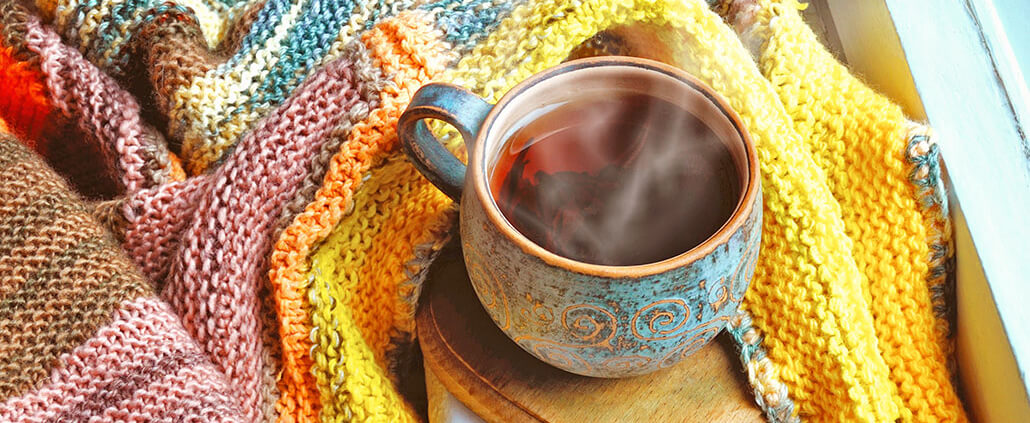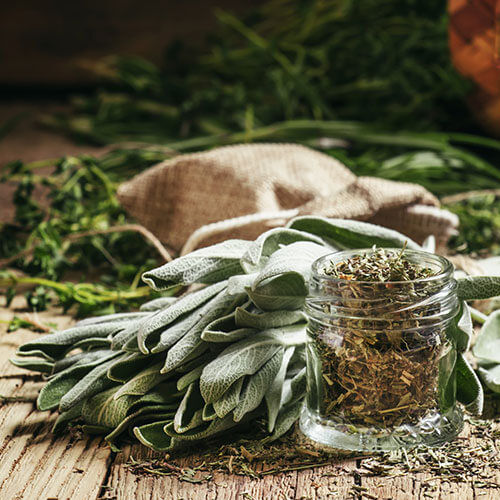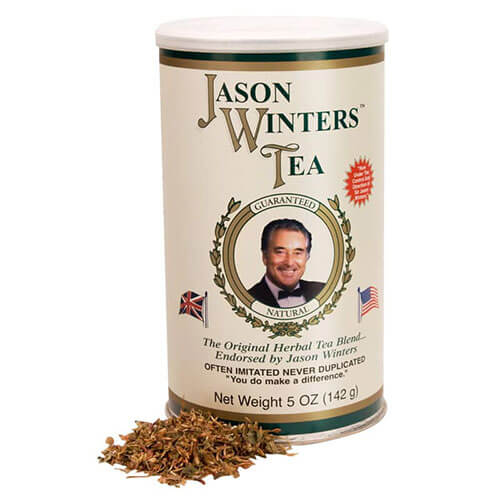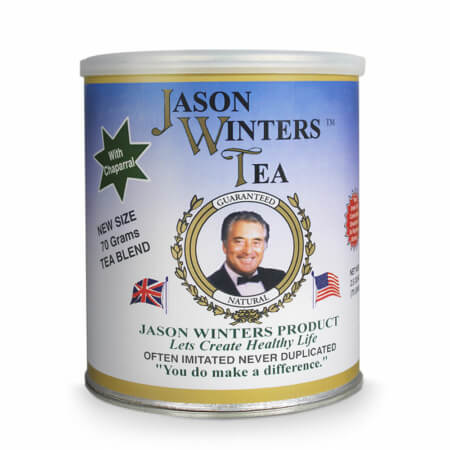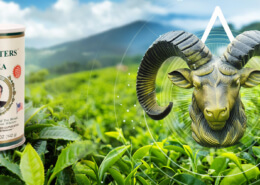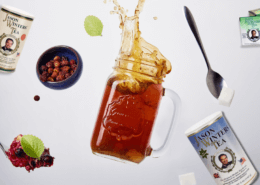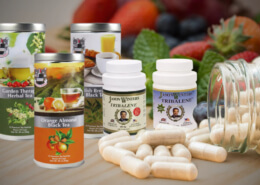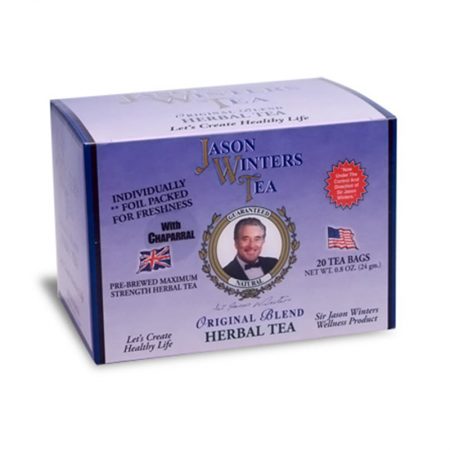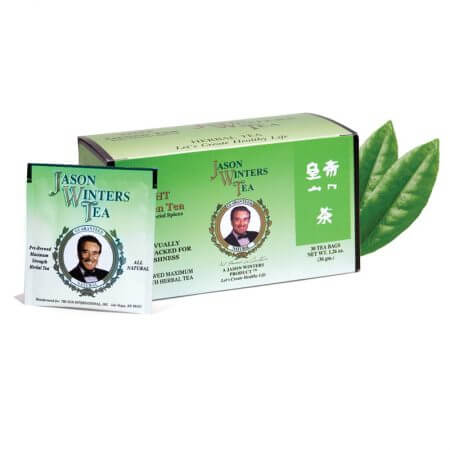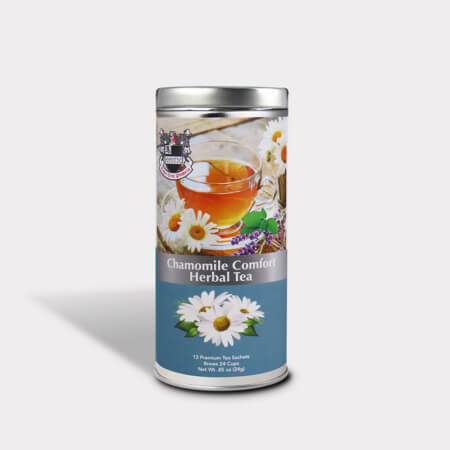Get A Good Night’s Rest with Sir Jason Winters Sage Tea
Almost everyone struggles with insomnia from time to time. The ability to get a good night’s sleep not only determines how you feel the next day, but can also affect your overall good health. Too little sleep for too long can cause serious health issues!
One of the best herbs to both invigorate and relax since ancient times is found in most kitchen spice cabinets. Sage (Salvia officinalis), also known as common or garden sage, is a perennial plant that grows easily in almost any climate. The botanical name Salvia comes from the Latin word salvare, which means to be well, to be protected, or to be healthy.
Sage grows to be about 1 foot tall and produces white, pink, or most commonly, lavender-colored flowers in the mid to late summer. It loves sunny areas and can survive the winter if properly covered and mulched. The oblong leaves have a rather bumpy texture that appears almost hairy. The aromatic properties of sage are peppery, camphorous, and most refreshing.
A Short History of Sage
The herb quickly spread in popularity within the ancient world and ended up in the monastery gardens in Europe. Later, traders spread this species of sage to the New World and found that the Indigenous Native Americans were using their own native species of sage.
During the Eighteenth Century, Chinese traders preferred the sage that grew in Europe became a part of the tea trade when Dutch traders discovered the Chinese preferred European Sage to their own native species. It became such a commodity that Chinese traders were willing to part with their own choicest teas in exchange for this herb.
Today, sage is readily available as a spice in stores and commonly grown as a must-have herb in gardens everywhere.
Drinking Sage Tea For Good Health
Sage is loaded with Vitamins A, B1, B2, B3, C, and E. This plant also is loaded with minerals such as calcium, iron, magnesium, and potassium. Sage also contains tannins and several powerful antioxidants such as flavonoids, camphor, rosmarinic acid, and thujone. The herb has both antiseptic and astringent qualities that, according to traditional herbalists, contain phytoestrogens that can balance out hormones and may be beneficial for women in particular.
The properties in the sage plant also can help boost memory and bring relaxation. Sage tea has shown itself to be an excellent tonic that gives a sense of relaxed awareness. It has shown itself to work particularly well as a brain tonic and assists in overall cognitive function. Scientists are investigating it as a potential treatment for certain forms of Alzheimer’s disease.
Some Traditional Uses of Sage Tea
Ancient humans have had millennia to learn about the properties of herbs like sage. Here are some ways that sage tea has been used.
- If you are feeling the beginnings of a cold coming on, a hot cup of sage tea may help you feel a little less miserable.
- The antiseptic and antibacterial properties contained within the leaves of the sage plant can help your lungs and respiratory passages feel less congested, as well as relaxing you enough so that you can get the rest that you need.
- Sage tea has shown itself to be effective for easing a sore throat. Gargling with an infusion of sage has demonstrated efficacy in helping ease laryngitis.
- For those suffering from sore, bleeding, or infected gums, sage used as a mouthwash can help make them feel better, and the tannins act to relieve bleeding and heal mouth sores and tighten and firm up the gums that surround the teeth.
- Sage has been known to assist in relieving profuse sweating.
- Sage can be used externally on the skin to address mild abrasions and to ease the itch of insect bites.
Sage to Promote Restful Sleep
When we get a good night’s sleep, we feel better and more revitalized. During times of stress, getting at least 6 – 8 hours of uninterrupted sleep is essential to keep our bodies and our minds healthy. Drinking sage tea can help to accomplish this.
- On hot summer nights, adding a few sage leaves to your bath can help cool you down while the aroma of the herb acts as a kind of aromatherapy to relax you.
- Sage seems to have a way of turning off the chatter so that our minds achieve a sense of calm even when we are feeling worried or stressed. Sage added to the bath may also help soothe and relax tired, sore muscles.
- Scientists believe that the rosmarinic acids contained within sage tea can act as a natural sedative. Traditional and clinical herbalists have found that sage is a natural way to help reduce feelings of anxiety and overall stress.
- Herbs with these properties produce what is called an anxiolytic effect. Unlike prescribed medications, sage is naturally anxiolytic and can relieve anxiety and insomnia in a safe and non-addictive way.
As you can see, there are many reasons why sage is regarded as an important herbal ally.
In his many travels, Sir Jason Winters learned from healers from around the world about the many potential health benefits of sage (Salvia officinalis),. He added it along with Red Clover and our special spice blend known as Herbalene to our Classic Blend Herbal Tea with Sage.
You can enjoy this tea any time of day, with meals and before bedtime. Just add boiling water to two teaspoons of the tea and let steep for 15 minutes. This tea is already delicious, but you can add your favorite natural sweetener such as honey, agave, or stevia to taste. During the summer, our Classic Blend Herbal Tea with Sage also makes an excellent sun tea.
This blend is our most popular tea. Right now, our 5-ounce canister, which is regularly priced at $29.95, is now just $24.95. Or if you are on the go, we also have this Original Blend Tea Bags with Sage available in a box of 20 tea bags. Regularly priced at $16.96 per box, we are offering considerable savings to our customers for just $11.95 per box.
If you want even more savings, why not take advantage of our convenient monthly or bi-weekly subscription service and save an additional 5%? Subscribing will ensure you get the best price and will always have our products delivered directly and safely to your door.
Resources
“Encyclopedia of Medicinal Plants” by Andrew Chevallier, 1996, Dorling Kindersley Ltd. London, England, UK
“School of Natural Healing” (20th Anniversary Edition, 1996, Christopher Publications, Springville, UT
“A Modern Herbal” by Mrs. M. Grieve (Vol 1 & 2), 1992, Dover Publications, New York, NY
“Planetary Herbology” by Michael Tierra, 1988, Lotus Press, Twin Lakes, WI

